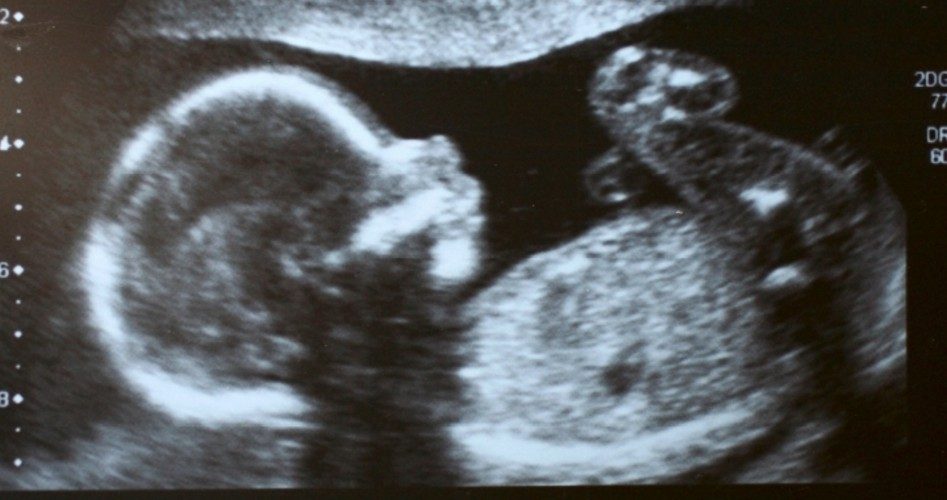
COVID-19 has prompted many states to call for all non-essential activities and medical procedures, including abortions, to cease as the country addresses the pandemic, but abortion providers are claiming abortions are essential and have had varying success upholding this in the courts. Though the Fifth Circuit Court of Appeals recently upheld Texas’ temporary abortion ban, for example, a federal judge in Oklahoma struck down part of the state’s ban on elective abortions this week.
On March 24, Oklahoma Governor J. Kevin Stitt signed an executive order that instructed Oklahoma residents to “postpone all elective surgeries, minor medical procedures, and non-emergency dental procedures.” Three days later, Governor Stitt’s office clarified his executive order in a press release, noting that it included “any type of abortion services … which are not a medical emergency.”
Governor Stitt defended his clarification, asserting his goal was to preserve medical supplies and facilities for the treatment of COVID-19.
“We must ensure that our health care professionals, first responders and medical facilities have all of the resources they need to combat COVID-19,” said Stitt. “I am committed to doing whatever necessary to protect those who are on the front lines fighting against this virus.”
The Center for Reproductive Rights and Planned Parenthood filed suit, claiming Governor Stitt was using the pandemic to advance a pro-life agenda.
The Hill reports Judge Charles B. Goodwin of the U.S. District Court for the Western District of Oklahoma, who was appointed by President Trump in 2018, ruled on Monday that the state could not use the pandemic to justify violating a woman’s “right” to an abortion.
The court determined, “While the current public health emergency allows the State of Oklahoma to impose some of the cited measures delaying abortion procedures, it has acted in an ‘unreasonable,’ ‘arbitrary,’ and ‘oppressive’ way — and imposed an ‘undue burden’ on abortion access — in imposing requirements that effectively deny a right of access to abortion.”
“Absent travel to another state, the postponement directed by the executive order and press release would effectively eliminate the ability of persons in Oklahoma” to get an abortion if they are 20 weeks pregnant before April 30, 2020 [when Stitt’s order expires], Goodwin wrote. This is “oppressive” and “unreasonable,” he added. Oklahoma already bans abortions after 20 weeks.
Goodwin declared the prohibition on surgical abortions “may not be enforced with respect to any patient who will lose her right to lawfully obtain an abortion in Oklahoma.” The judge also ruled against the state’s ban on medication abortions, claiming they are “safer” and require “less interpersonal contact and PPE than surgical abortion.”
However, Judge Goodwin did add it was “permissible use of state power” to postpone abortions for some women, so long as it does not push them past the 20-week threshold by the time Stitt’s order expires. For example, a woman who is 11 weeks pregnant would still be able to legally seek an abortion after April 30, when the executive order expires, in which case it is acceptable for the state to delay her access to an abortion.
“Giving deference to the state executive as the primary arbiter of what steps are necessary in that area to stop the spread of COVID-19, and to ration resources needed to treat patients infected with that virus, the Court concludes that this type of temporary delay is a permissible use of state power in a health emergency,” Goodwin wrote.
Governors across the country have suspended elective abortions in response to the coronavirus crisis, prompting abortion providers to take immediate legal action. Federal judges have blocked the orders in Ohio, Alabama, and Texas, but the Fifth Circuit Court of appeals issued a stay on the ruling in Texas, thereby allowing the abortion ban to remain. Another appeals court affirmed the lower court’s ruling blocking Ohio’s order, CNN reports.
Oklahoma Attorney General Mike Hunter said the state was “very disappointed” with Judge Goodwin’s ruling and intends to appeal it to the 10th U.S. Circuit Court of Appeals.
“Carving out abortion from the state’s comprehensive efforts to flatten the curve creates a horrible precedent that may encourage a flood of other judicially conjured exceptions, completely undermining the state’s ability to combat the worst public health crisis in Oklahoma history,” he said, according to The Oklahoman. “We all are making adjustments to help save thousands of lives — abortion providers should be no different. The state is not required to prioritize ending human life in utero over saving human lives, and certainly nothing in the Constitution says so.”
As noted by Life Site News, Governor Stitt has a strong history of pro-life efforts. He issued an executive order in January, for example, that banned state-funded travel to California in retaliation for Caifornia’s ban on state-funded travel to Oklahoma because of the state’s pro-life stance. “If California’s elected officials don’t want public employees traveling to Oklahoma, I am eager to return the gesture on behalf of Oklahoma’s pro-life stance. I am proud to be governor of a state that fights for the most vulnerable among us, the unborn,” Stitt declared at the time.
Raven Clabough acquired her bachelor’s and master’s degrees in English at the University of Albany in upstate New York. She currently lives in Pennsylvania and has been a writer for The New American since 2010.





